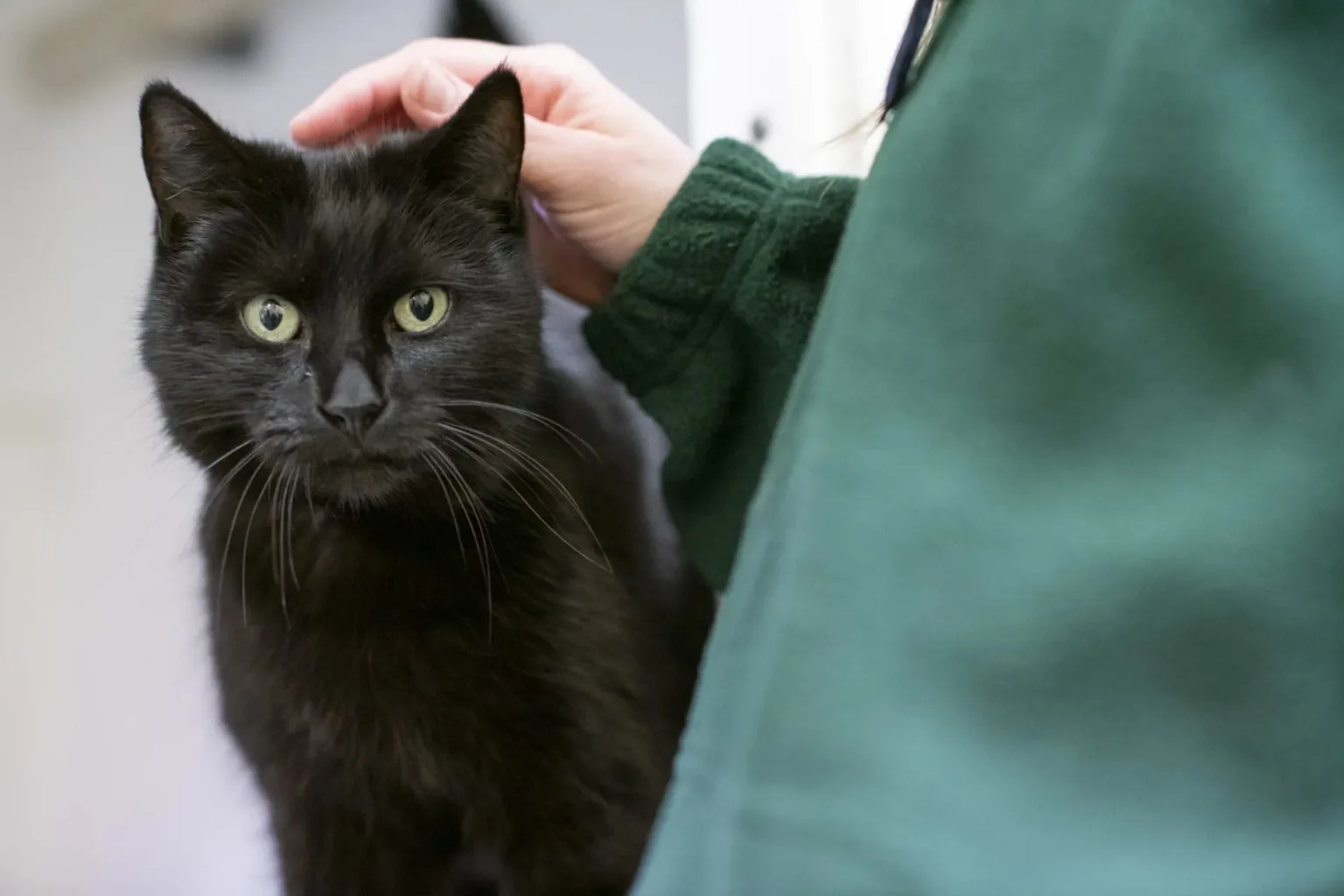Could you star in The Dog House?
If you're looking for a match, filming for the next series starts this Spring.

It’s important to regularly health check your cat to ensure they’re in tip-top condition.
Here are some simple checks you can do to make sure they’re happy and healthy.
Bend your cat’s ear back gently and look inside. Make sure there isn’t a large amount of discharge or a strong smell coming from the ear.
Gently lift up your cat’s lip folds to check their teeth and open the jaw to check their mouth. The gums and tongue should be a salmon pink colour, any redness or lumps could suggest a problem. Check the teeth for tartar, any large build up could need removing by your vet. If you notice your cat has bad breath, get them checked by your local vet.
Check their eyes are clear, bright and free from discharge.
Check for any excessive discharge, and also for any coughing or sneezing as this could be a sign of cat flu.
Check your cat’s body all over for any lumps and bumps, note if any are changing in size or shape. Look for any bald patches, irritations, soreness or scabs on the skin, check for fleas and keep an eye on any excessive scratching or nibbling.
Look out for matts in long-haired cats, or older cats who may be unable to groom.
Lift their feet up and gently check the pads for any splinters or pebbles. Keep a close eye on the length of their nails – if your cat is predominately indoors then they may struggle to maintain a short claw length.
Keep an eye on your cat’s faeces, as an upset stomach can be a sign that your cat is unwell.
After you have given your cat a health check make sure you give them a fuss and some treats. If at any point they are not happy with being checked over then stop and try another time.
Your cat may not always clearly let you know if they’re in pain or unwell. Look out for these subtle signs:
If you have any concerns about the health of your cat, consult your vet immediately.
Vaccinations should be given yearly by your vet and will protect your cat from potentially fatal diseases.
An infestation of worms can be easily prevented with regular worming treatment. This can be quite a serious problem in kittens and cats, it also poses a small risk to you and your family. There are many types of inexpensive worming treatments that can be bought from your vet, you can easily administer these at home.
Fleas and ticks cause discomfort as they feed on your cat’s blood – they can also encourage the spread of disease. They are usually picked up by your cat when they’re outside although they can travel into the house in many ways. Fleas and ticks can thrive in your house and furnishings due to the warm environment.
Ticks and fleas can be kept under control with many different types of regular treatment. Discuss your cat’s individual requirements with your vet.
Take your cat for regular check-ups at the vets for general body condition, weight and teeth. Groom them regularly to keep their coat in good condition and strengthen their bond with you – this is especially for long haired cats. Remember to keep an eye on your cat’s weight and feed them the right diet to keep their teeth healthy.